 |
| |
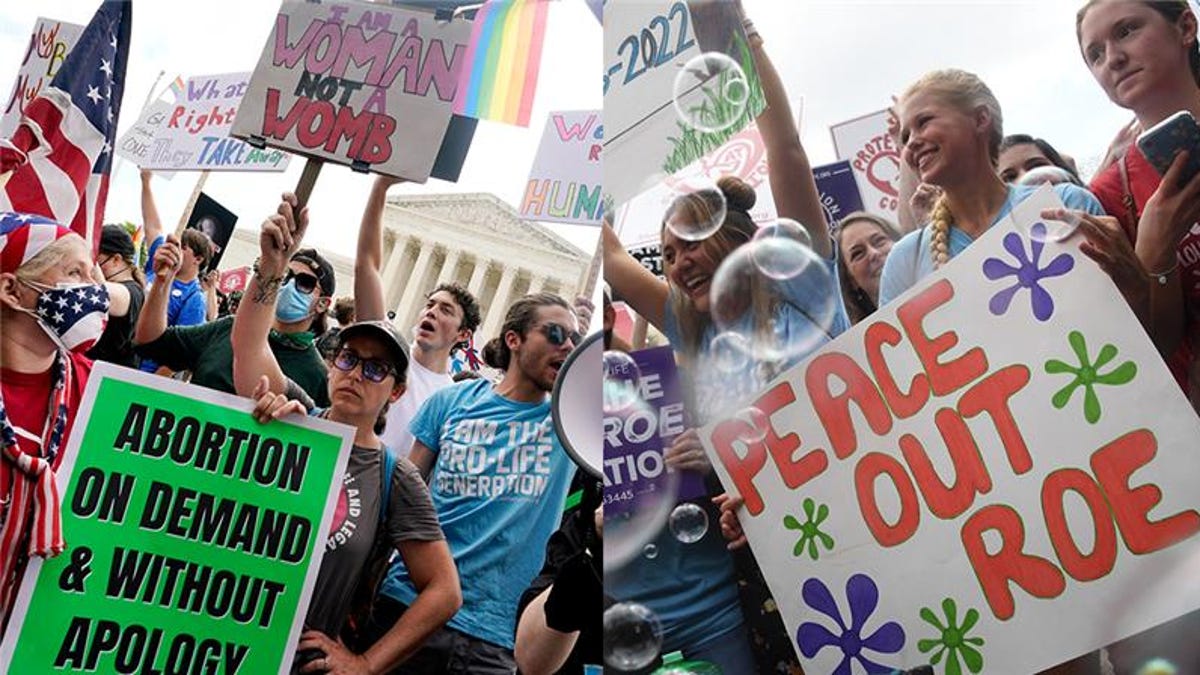 | | | The end of Roe | | The Supreme Court has overturned the constitutional right to abortion. | | |
| |
| |
| |
| |
| Welcome to a special edition of our newsletter, Daily Briefing readers. I'm Nicole Fallert. |
| Roe v. Wade has been overturned by the Supreme Court. The decision on the landmark 1973 case that established the constitutional right to abortion comes with enormous consequences for reproductive rights. |
| Now the battle over abortion shifts largely to the states: Republican lawmakers are set to ban abortion in about half the states, while Democratic-led states are likely to reinforce procedure protections. Access to abortion, in other words, will depend almost entirely on where a person lives. |
| Friday's decision in the Mississippi case Dobbs v. Jackson Women's Health Organization comes weeks after a leaked draft opinion suggested the court was considering overturning Roe, igniting a firestorm around one of the nation's most divisive cultural issues. Read more |
| |
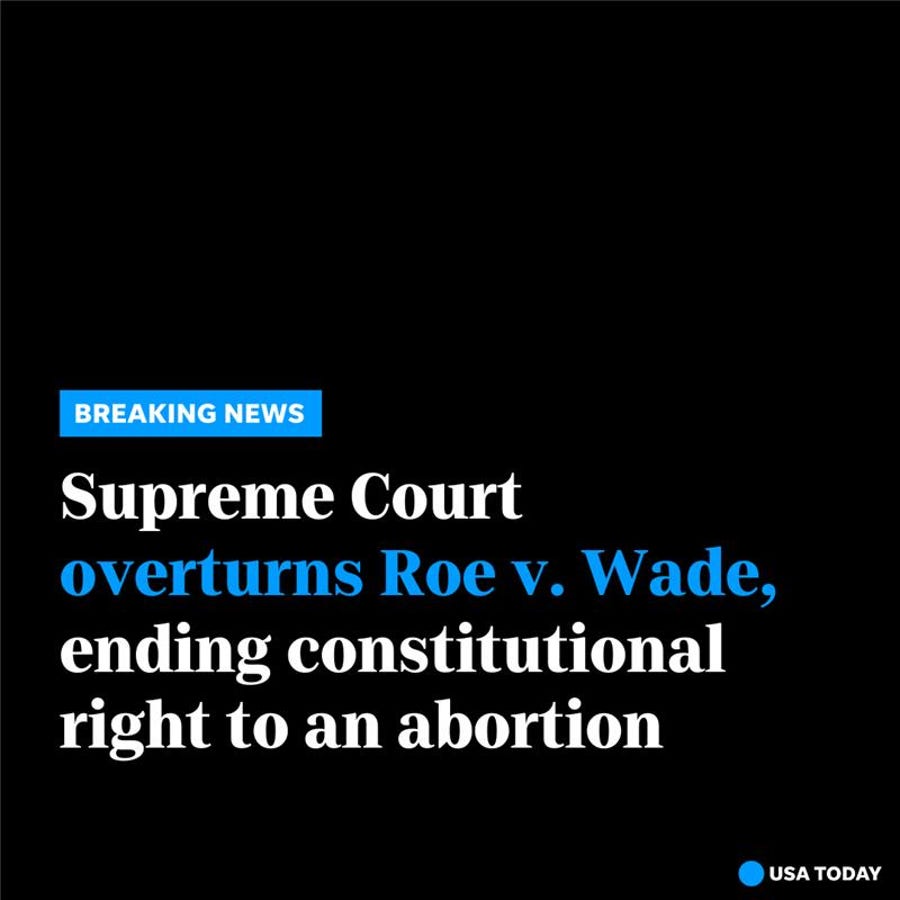 | | Roe v. Wade | | USA TODAY | |
What this means for Americans |
| Today's decision does not mean abortion is illegal in all 50 states. But it does mean that people seeking abortion care will have to navigate a complex web of state laws that either protect or prohibit their right to choose. |
| Across the South and parts of the Midwest, abortion is likely banned or more difficult to access. Meanwhile, North and Northwest states are poised to become havens where abortion rights are safeguarded. In 13 states, so-called trigger laws will go into effect following the Dobbs decision, immediately banning abortion in most instances with few exceptions for rape and incest, according to USA TODAY analysis. Some 16 states have codified the right to an abortion, and in 10 others, abortion rights have state constitutional protection. But even if abortion remains legal in a state, myriad restrictions constrain people's options and narrow their ability to get the procedure. Read more |
| |
 | | Abortion-rights activists react after hearing the Supreme Court decision on abortion outside the Supreme Court in Washington, Friday, June 24, 2022. | | Jacquelyn Martin, AP | |
Anti-abortion groups applaud a victory |
| Advocates against abortion lauded the Dobbs decision. But many anti-abortion advocates see the ruling as just the beginning of work to eliminate abortion as an option. Some say they'll be working immediately to get more support for expecting and new parents. Others are gearing up for battles at the state level to enact more restrictions, including laws that would make anyone who performs or gets an abortion guilty of a felony. Read more |
| |
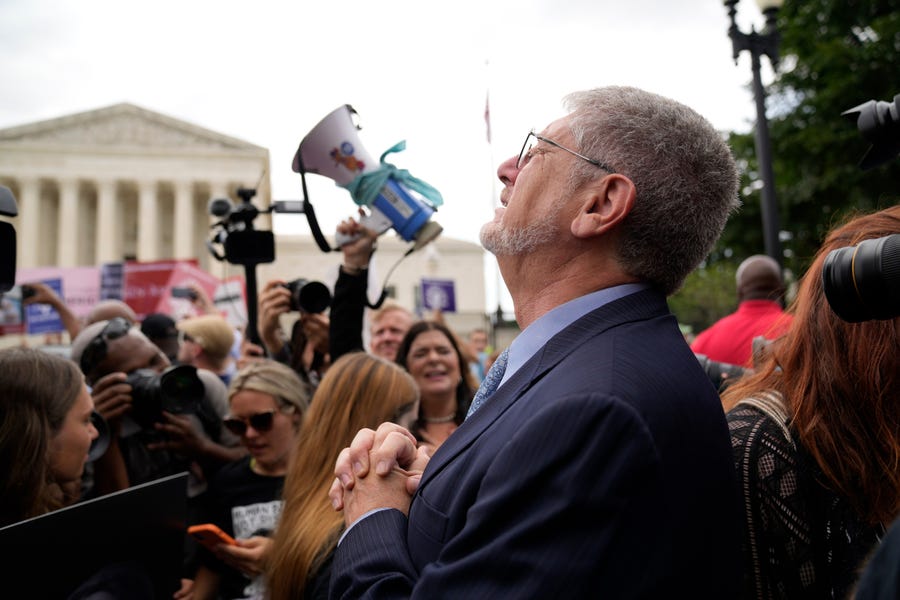 | | Demonstrators react outside the Supreme Court in Washington, Friday, June 24, 2022. The Supreme Court has ended constitutional protections for abortion that had been in place for nearly 50 years in a decision by its conservative majority to overturn Roe v. Wade. | | Josh Morgan, USA TODAY | |
Lawmakers react to the end of Roe |
| Immediately following the Supreme Court's ruling on Friday to overturn Roe v. Wade, current and former lawmakers reacted to the decision. Rep. Marjorie Taylor Greene called the ruling an "answer to prayer." Speaking to reporters outside the Capitol, Greene said that "we're going to protect life." Speaker Nancy Pelosi said the U.S. Supreme Court decision to overturn Roe v. Wade is "outrageous and heart-wrenching" and vowed to fight against it in Congress and at the ballot box. Read more |
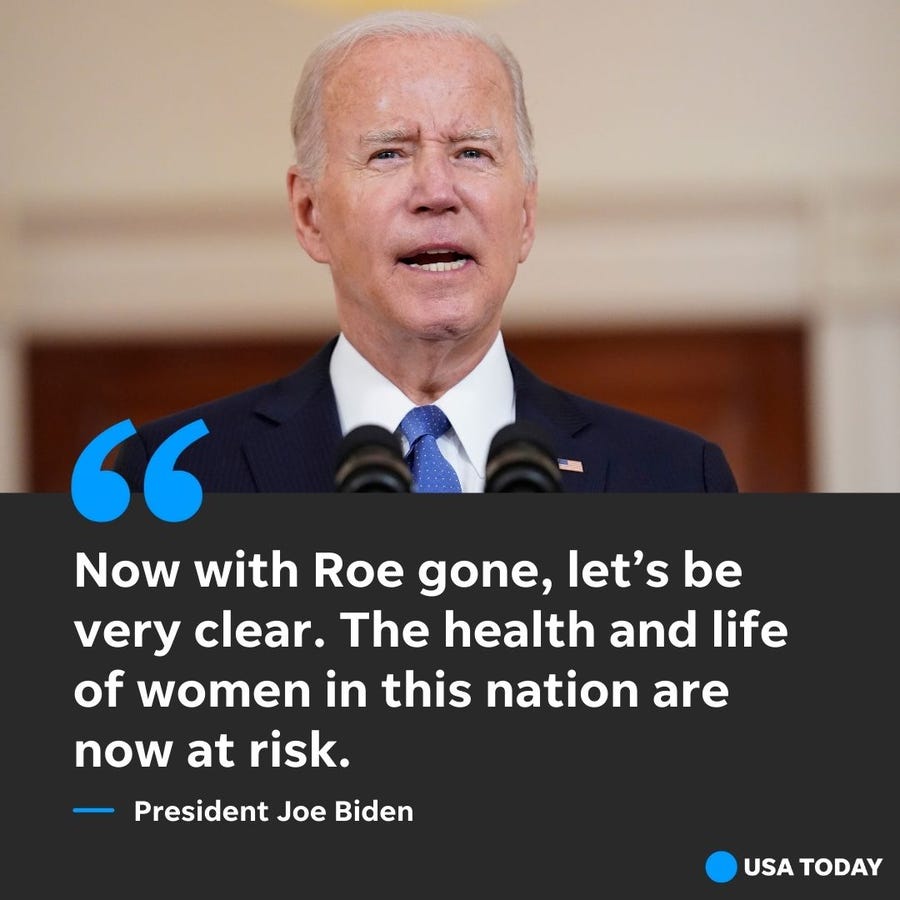 | | President Joe Biden reacts to the fall of Roe v. Wade. | | USA TODAY | |
What's next in the abortion battle? |
| Abortion by pill already accounts for at least 54% of terminated pregnancies in the U.S., but the pill option is likely to be even more popular post-Roe as in-person clinics either shutter or see surging demand. The two-pill medication option is cheaper and less invasive, allowing people to privately and safely end their pregnancies at home. This is safer emotionally for a lot of people, experts say, especially if they do not feel safe in clinic settings due to past trauma. But as federal restrictions have relaxed on medication abortion as recent as December 2021, conservative states are ramping up efforts to curb this option post-Roe. Read more |
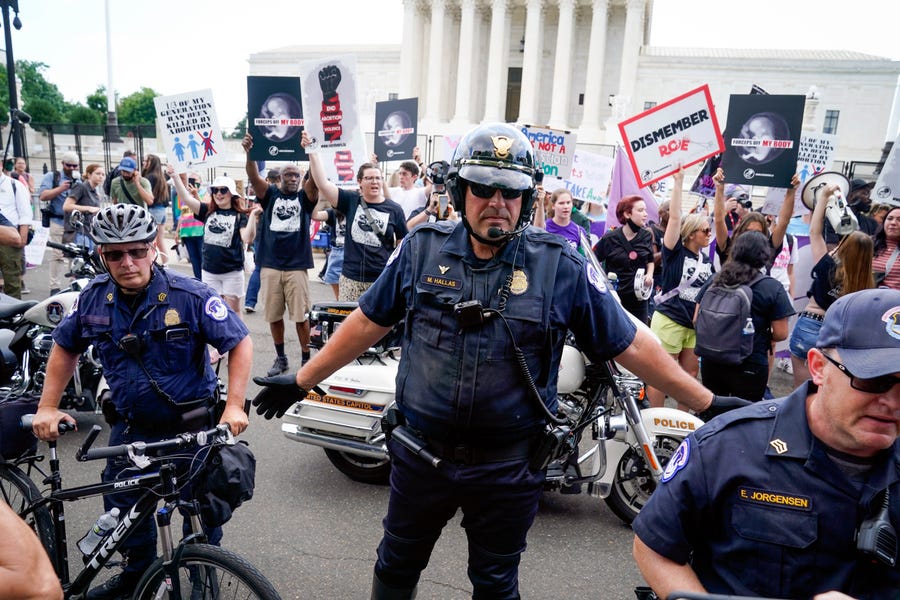 | | Protests at U.S Supreme Court as people wait for decision in Dobbs v. Jackson Women's Health Organization which is among the remaining cases on the Supreme Court docket before the term ends at the end of June. | | Jack Gruber, Jack Gruber-USA TODAY | |
Could Congress have done anything to protect Roe? |
| Congress tried — but failed — to make Roe v. Wade the law of the land after the leaked opinion. In May, Senate Democrats were unable to overcome a filibuster on the Women's Health Protection Act of 2022, which was passed by the House. The bill was not expected to pass, but Majority Leader Chuck Schumer, D-N.Y., framed the vote as a way to put every member of the Senate on the record about their stance on abortion in the wake of the leaked decision. Read more |
| |
 | | Anti-abortion campaigners celebrate outside the US Supreme Court in Washington, DC, on June 24, 2022. | | OLIVIER DOULIERY, AFP via Getty Images | |
Far-reaching consequences |
| Criminalizing abortion will not stop people from wanting to end their pregnancies, advocates say, they will just take more extreme measures to do so. As clinics shutter or are overwhelmed in states with abortion bans or draconian restrictions, a growing number of people will be forced to travel outside their home state for abortions. And conservative states will continue to take steps to chill abortion-related travel post-Roe. It's not clear whether states have the right to extend their own restrictive abortion laws across state lines, but legal experts say more states could pursue laws that permit this. Read more |
| |
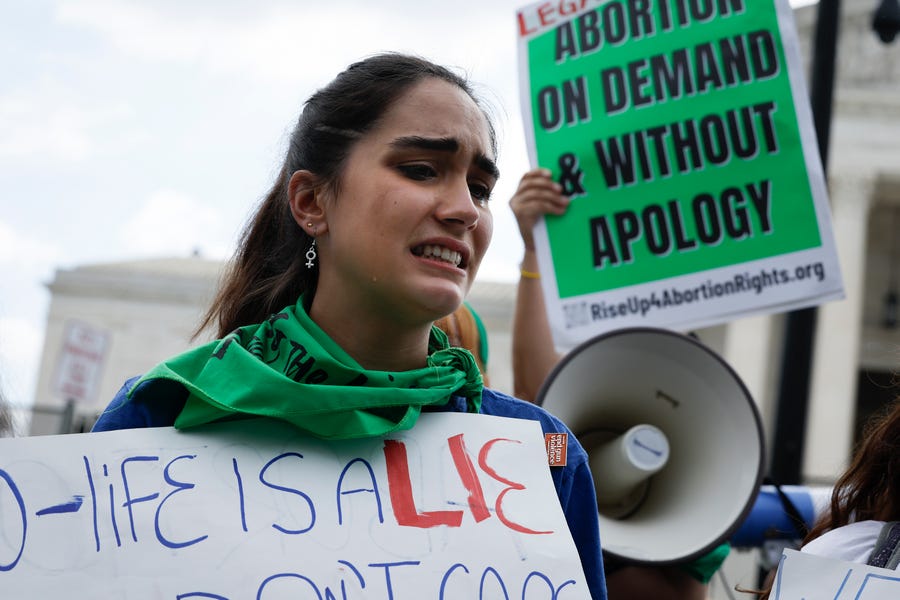 | | Abortion-rights activist Carrie McDonald react to the Dobbs v Jackson Women's Health Organization ruling in front of the U.S. Supreme Court on June 24, 2022 in Washington, DC. | | Anna Moneymaker, Getty Images | |
More to read on the end of Roe v. Wade |
| |
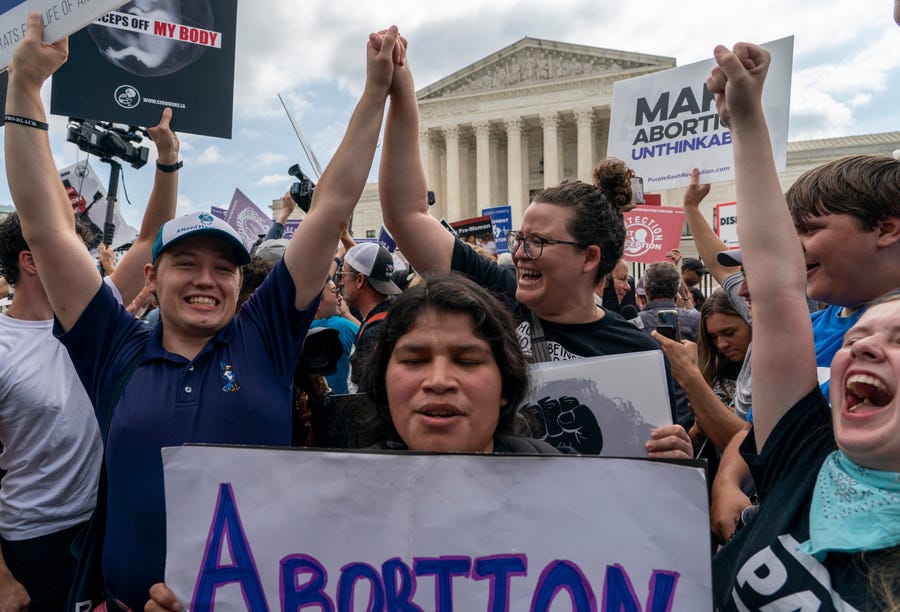 | | Anti-abortion protesters celebrate following Supreme Court's decision to overturn Roe v. Wade, federally protected right to abortion, in Washington, Friday, June 24, 2022. | | Gemunu Amarasinghe, AP | |
| |
| |
| |
No comments:
Post a Comment